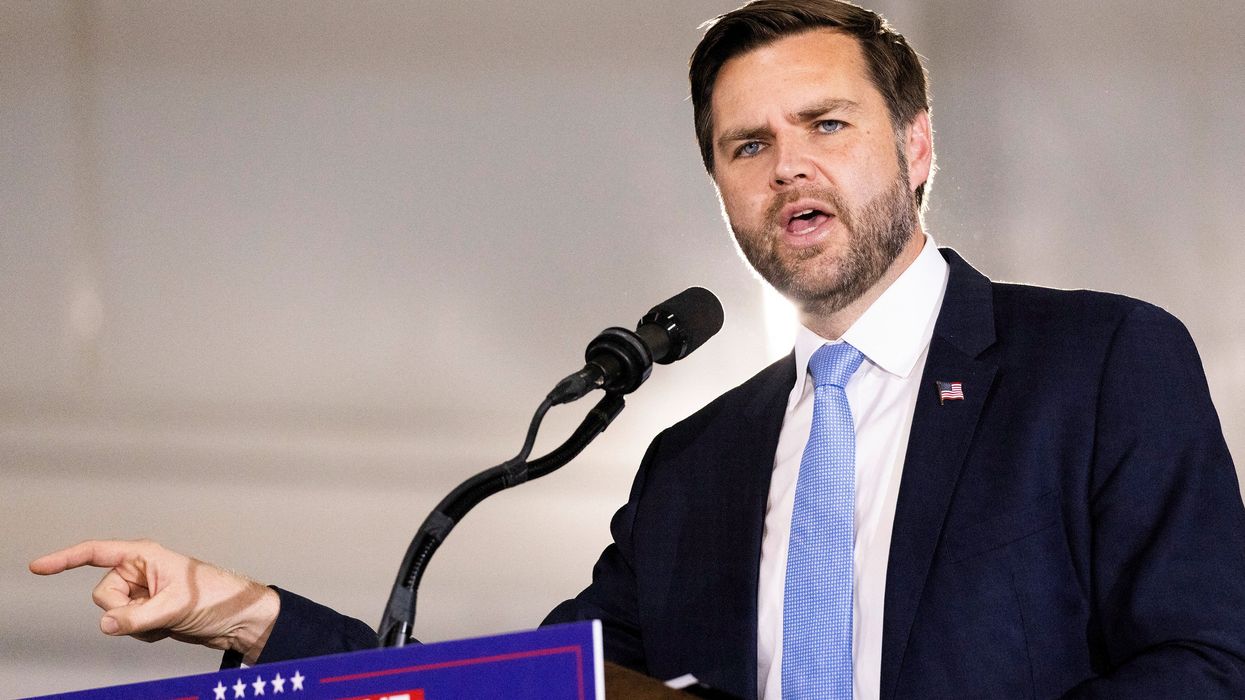Vice President Kamala Harris has been making a concerted effort to convince both consumers and business leaders that former President Donald Trump's economic proposals would be disastrous for the United States — especially his tariff proposals, which, Harris warns, would amount to a national "sales tax on the American people."
The Washington Post, in fact, has reported that companies are planning to raise their prices in anticipation of Trump possibility winning the election and following through on his tariff proposal.
Much of Harris' criticism of Trump's economic agenda has been aimed at Trump himself. But in an article published by Politico on November 3, journalists Hailey Fuchs and Sam Sutton report that business leaders are also "worried about" Trump's running mate, Sen. JD Vance (R-Ohio).
READ MORE: Harassing letters threatening biblical hell fire targets Democratic voters in Wisconsin
"Vance has consistently bashed big business, expressed antipathy toward corporate merger activities, sided with labor and emphasized his support for costly tariffs," Fuchs and Sutton explain. "He's spoken favorably of the Biden Administration's Federal Trade Commission chair, Lina Khan, who is universally viewed as a thorn in the side of major businesses, and forged unlikely alliances with progressives, including Massachusetts Sen. Elizabeth Warren."
The reporters add, "With Vance by Trump's side, some corporate leaders worry a second Trump Administration would be even more hostile to their interests than the first was. While he would have little agenda-setting power of his own, Vance would likely reinforce Trump on key economic issues — trade policy, labor issues, market power — unlike former Vice President Mike Pence, who acted more as a check on Trump's populist leanings."
Vance's economic views, according to Fuchs and Sutton, are a big departure from "the free-market approaches of (President) Ronald Reagan and (conservative economist) Milton Friedman."
GOP donor William H. Strong told Politico, "(Vance) has taken a tack that big business, particularly some of the big tech stuff, is by definition bad. Just because you're big doesn't mean you’re bad.... I don't like those broad characterizations that he alludes to that big business is somehow bad. It's just not."
READ MORE: 5 ways Trump is planning to thwart election results: report
Read Politico's full article at this link.


